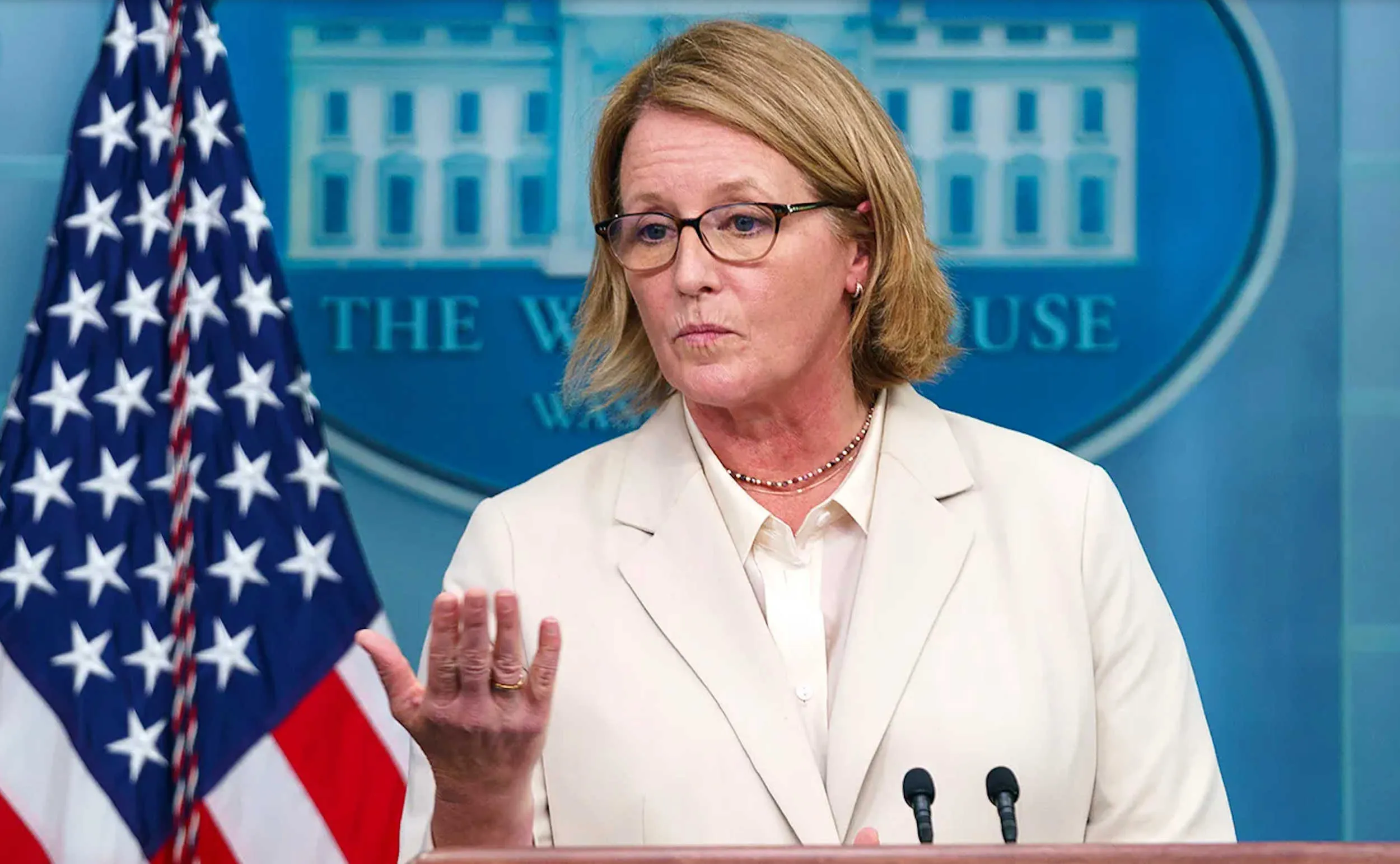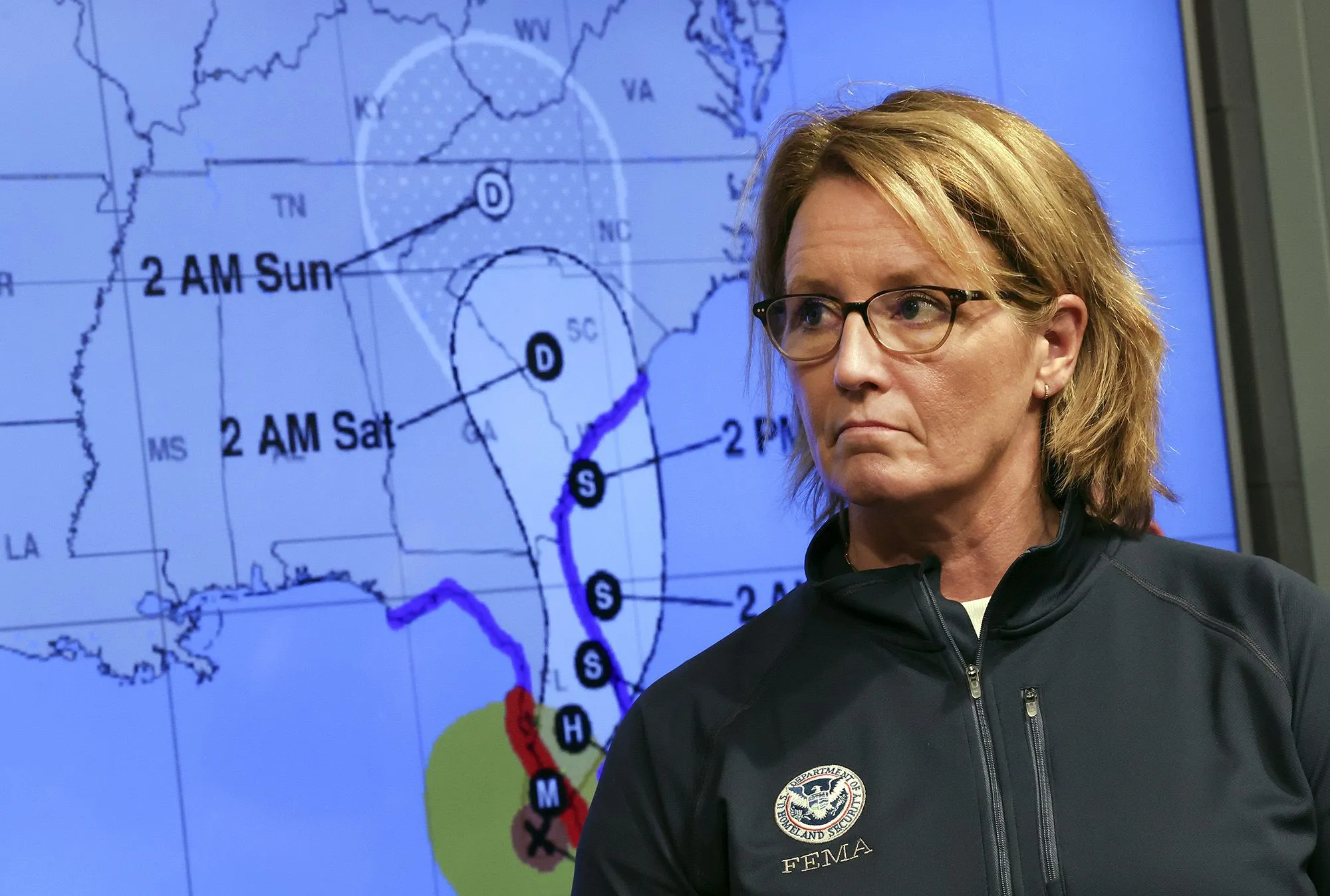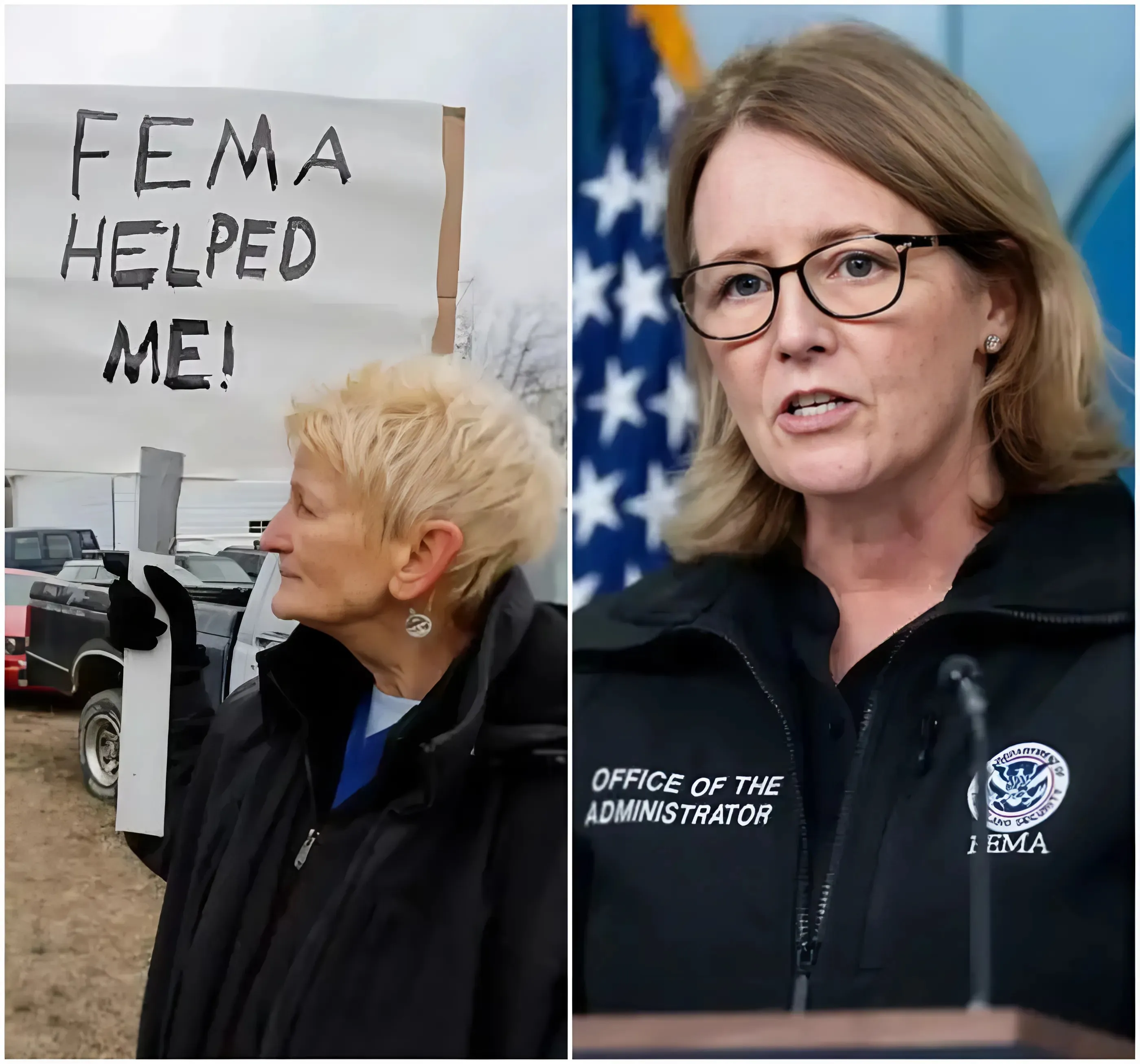Deanne Criswell, appointed by President Joe Biden in 2021 as the Administrator of the Federal Emergency Management Agency (FEMA), has been dismissed following a controversial remark made during a visit to North Carolina. Known for her extensive experience in emergency management, Criswell was initially regarded as a competent leader, but her tenure has now been overshadowed by an incident that shocked the public and political figures alike.

During a visit to North Carolina, where flood victims were seeking federal assistance, Criswell reportedly told displaced families to “go buy a tent.” The remark, seen as dismissive and insensitive, immediately sparked outrage among residents who had lost their homes and belongings. Many viewed it as a failure of leadership from the very agency responsible for providing disaster relief. The backlash was swift, with state officials, including Governor Roy Cooper, condemning the statement and calling for an immediate review of FEMA’s actions.

Criticism extended far beyond North Carolina, with national media, advocacy groups, and citizens expressing frustration over FEMA’s handling of disaster response. Many pointed out the stark contrast between the vast resources available to the agency and the reality faced by disaster victims, who often struggle to rebuild their lives. The idea that temporary shelters could serve as a sufficient solution only deepened concerns about FEMA’s effectiveness and empathy.

Following the uproar, the Biden administration launched a formal review of the incident. In the aftermath, the decision was made to relieve Criswell of her duties, signaling a shift in FEMA’s leadership. President Biden, in a statement regarding her dismissal, emphasized the agency’s responsibility to support people in crisis with compassion and efficiency. He acknowledged the gravity of the situation, stating, “The role of FEMA is to offer help and compassion during the worst times of people’s lives. Unfortunately, Administrator Criswell’s actions have fallen short of these expectations.”
The decision was met with mixed reactions, with some seeing it as a necessary step in restoring public trust in FEMA, while others questioned whether her removal addressed the deeper systemic challenges facing the agency. In a surprising move, former President Donald Trump, now serving as the 47th President of the United States, issued a public statement celebrating her dismissal. Trump, a long-time critic of FEMA’s operations, took the opportunity to criticize the Biden administration, claiming the firing was “long overdue” and that the agency needed to prioritize real disaster relief rather than “handing out excuses.”
Criswell’s removal raises larger questions about leadership in government agencies responsible for crisis response. The complex nature of disaster management requires not only logistical efficiency but also a deep understanding of the human impact of natural catastrophes. The backlash against her remark highlights the dangers of a disconnect between agency officials and the people they are meant to serve.
With FEMA now searching for a new administrator, the agency has vowed to refocus on ensuring future disaster responses are conducted with greater sensitivity and urgency. The next leader will face immense challenges, particularly as climate change continues to increase the frequency and severity of natural disasters across the country. The ability to effectively manage emergencies while maintaining public trust will be critical in shaping FEMA’s future.
As for Deanne Criswell, her firing marks an abrupt end to what was once a promising tenure. The controversy surrounding her remark in North Carolina serves as a stark reminder of the importance of empathy in leadership, particularly in agencies tasked with responding to human suffering. While she played a key role in overseeing disaster response efforts, the lasting memory of her time at FEMA will likely be defined by the incident that ultimately led to her downfall.


